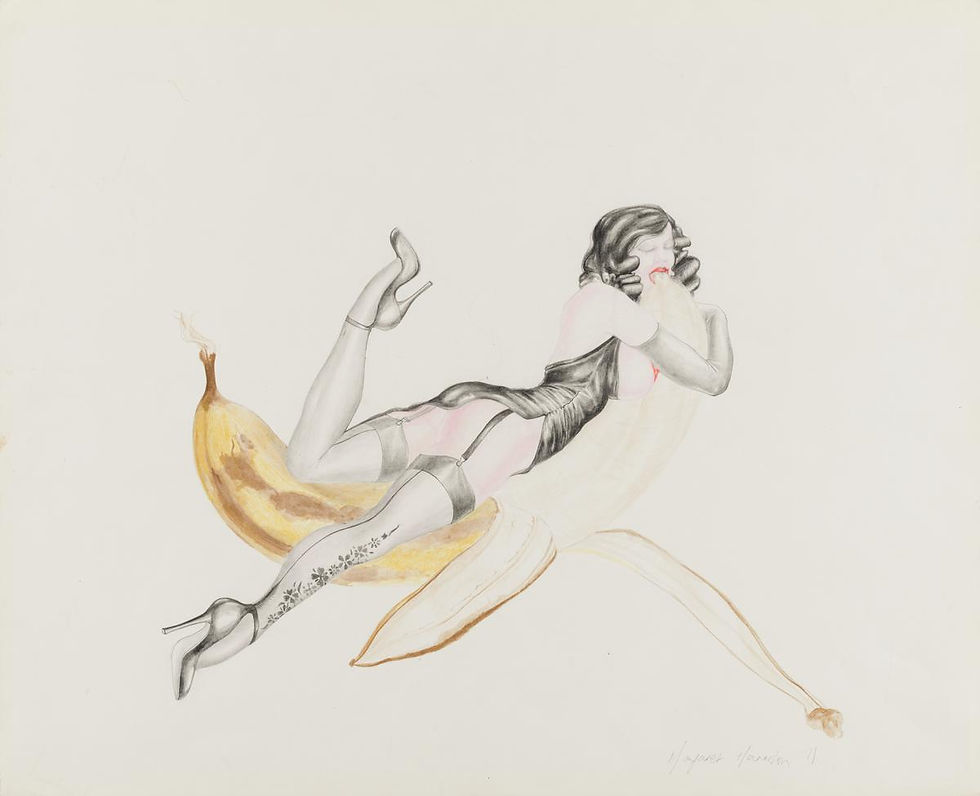Art422- Sexuality.2
- Feb 4, 2024
- 2 min read
Like sexuality, the practice of feminism is common within art. An example of where the two overlap is Margaret Harrison’s “Banana Woman, 1971). She uses this illustration of a woman posed seductively to speak about many issues that affect women “such as equal pay, homeworkers’ rights, domestic abuse and rape.” An interesting choice to continue to ‘use’ women for sex appeal, to raise awareness. She is almost using the male gaze in an attempt to benefit women. The artist describes this series of work as “anti-pornographic’ because they were drawn by a woman”. This sexist double standard complicates audience interpretation and interactions. She is creating more visuals supporting the patriarchal standards set for women, when viewed without context they could support the male gaze. Evidenced by their first showing in 1971, this “was closed by police after one day for being ‘indecent’.”

Sarah Lucas’ Sculpture titled “Pauline Bunny”, plays with abstraction of the female body. Using the impression of legs and their posing, “it exists as an exquisite trap for heterosexual male desires”. When combined with the disconcerting antenna-like additions on top of the sculpture, It shifts the impression of sex appeal to realisation, interest and embarrassment. Objectifying a woman to achieve realisation of the male gaze is an effective use of the problem to achieve an almost instant solution (in the moment). It provokes one to question their initial thoughts, and potentially how these thoughts are transferable to the wider world.

Interested in the process of representing the female body through sculpture, I came across the piece “R.S.V.P.” by Senga Nengudi. Using sand and womens tights, she creates the impression of “body parts like limbs, breasts, and buttocks”. Exploring “elasticity of skin”, and the strain of ageing on the female body. A physical representation of various societal appearance pressures changing through time, and how experiences can physically ‘weigh you down’. This installation is designed to provoke response, “R.S.V.P”, by being relatable to the audience. Sharing experienced struggles of ageing, normalising changing bodies.

The initial wave of feminist artwork shows examples of the theme of sexuality. Judy Chicago’s “The Dinner Party” includes 39 hand painted ceramic plates. 37 of them include elaborate, bright paintings of vulvas. Using this female form to celebrate famous feminists throughout history. The use of a vulva to represent being a woman, shows the strong dominant belief that being a woman is based on your biological gender. Trans-exclusionary radical feminism was one aspect of second wave feminism. It’s characterised as the belief that transgender women shouldn’t be included within the feminist movement.





Comments